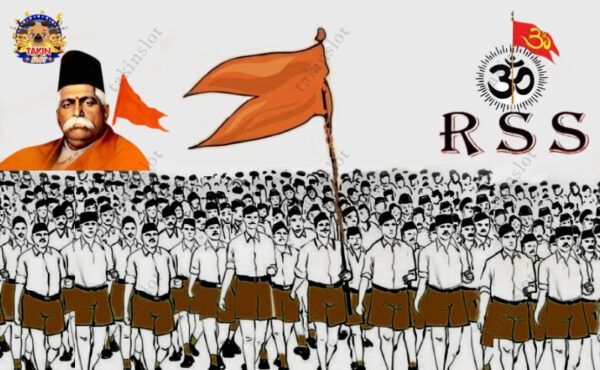What is RSS
RSS Full Form: Rashtriya Swayamsevak Sangh (RSS) translates to ‘National Volunteer Organization’ and is the fifth-largest charity organization in India. Established by Keshav Baliram Hedgewar and Dr. Annie Besant in 1925, its primary aim was to safeguard Hindus from Muslim and British rule in India, while also aiming to unify Hindus of various castes, regions, and religions under one state. With its headquarters located at Akshardham in Delhi since 1990, RSS has grown to become the largest volunteer organization globally, boasting over 40 million members.
RSS Philosophy and Objectives
The RSS aims to foster a society where the state is guided by Hindu principles, promoting the unity of all Hindu traditions under the umbrella of ‘Vedic Dharma.’ Emphasizing Hindu pride and patriotism, RSS advocates for Hindutva ideology, believing it to be crucial for India’s strength and greatness. Founded on the principle of reviving Hindu values, RSS has been vocal against injustices faced by Hindus throughout history and has spearheaded various Hindutva movements.
History of RSS: RSS Full Form
Originating in Nagpur in 1925, RSS was established to rejuvenate Hinduism and counteract foreign invasions. Over the years, it has utilized mass mobilization and grassroots efforts to propagate Hindu ideals and resist external threats to Indian culture and identity. RSS played a pivotal role during India’s freedom struggle and later contributed to the formation of political entities such as Jan Sangh and Bharatiya Jana Sangh.
RSS Membership and Structure: RSS Full Form
RSS operates through a decentralized structure, with members organized into groups known as ‘shakhas.’ Membership in RSS, commonly referred to as ‘Swayamsevaks,’ is attained through selection and training processes. The organization boasts nearly 1.25 million members, each contributing to its overarching mission of promoting Hindu values and principles.
Role of RSS in Indian Society: RSS Full Form
RSS functions as a unifying force for Hindus, advocating for their rights and interests while fostering a sense of national pride and unity. Its activities encompass social, cultural, and political spheres, influencing various aspects of Indian society. With its commitment to Hindutva ideology and societal harmony, RSS continues to play a significant role in shaping India’s cultural and political landscape.
Conclusion
RSS (RSS Full Form) remains a prominent and influential organization in India, championing the cause of Hindutva and Hindu nationalism since its inception. Founded on the principles of Hindu pride and unity, RSS has played a multifaceted role in Indian society, contributing to social, cultural, and political developments. While its exact membership figures remain undisclosed, RSS’s impact on Indian society and politics is undeniable, reflecting its enduring relevance and influence.
FAQs about RSS Full Form
What does RSS stand for and when was it established?
RSS stands for Rashtriya Swayamsevak Sangh, meaning ‘National Volunteer Organization.’ It was founded in 1925 by Keshav Baliram Hedgewar and Dr. Annie Besant.
What is the primary objective of RSS?
The primary objective of RSS is to safeguard Hindu interests, promote Hindutva ideology, and unify Hindus of various castes, regions, and religions under one state.
How does RSS operate and how many members does it have?
RSS operates through decentralized units called ‘shakhas,’ and its members, known as ‘Swayamsevaks,’ undergo selection and training processes. It boasts nearly 1.25 million members.
What role did RSS play in Indian history and politics?
RSS played a significant role during India’s freedom struggle and later contributed to the formation of political entities such as Jan Sangh and Bharatiya Jana Sangh. It continues to influence Indian society and politics with its advocacy for Hindutva and Hindu nationalism.
What is the significance of RSS in contemporary Indian society?
RSS remains a prominent force advocating for Hindu values, cultural pride, and national unity. It actively engages in social, cultural, and political spheres, shaping India’s cultural and political landscape.




